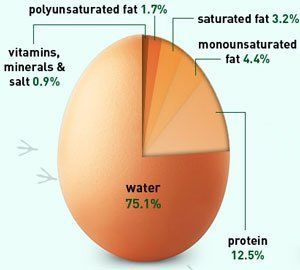
Did you know?


Recommended Storage Times for Eggs
| Fresh shell eggs | By best before date |
| Leftover yolks or whites | Within 2 to 4 days |
| Hard-Cooked eggs | Within 1 week |
| Prepared egg dishes | Within 3 to 4 days |
| Pickled eggs | Within 1 month |
| Frozen whole eggs (blended) | Within 4 months |
The eggs in the Rosemary Favorites brand represent the highest quality, locally produced eggs available. Kaliko Orian traded her city lifestyle for raising her happy chickens on California’s Central Coast, proudly bringing the best eggs to her friends, family and neighbors.
In addition to thoroughly cooking eggs, follow these food handling practices: